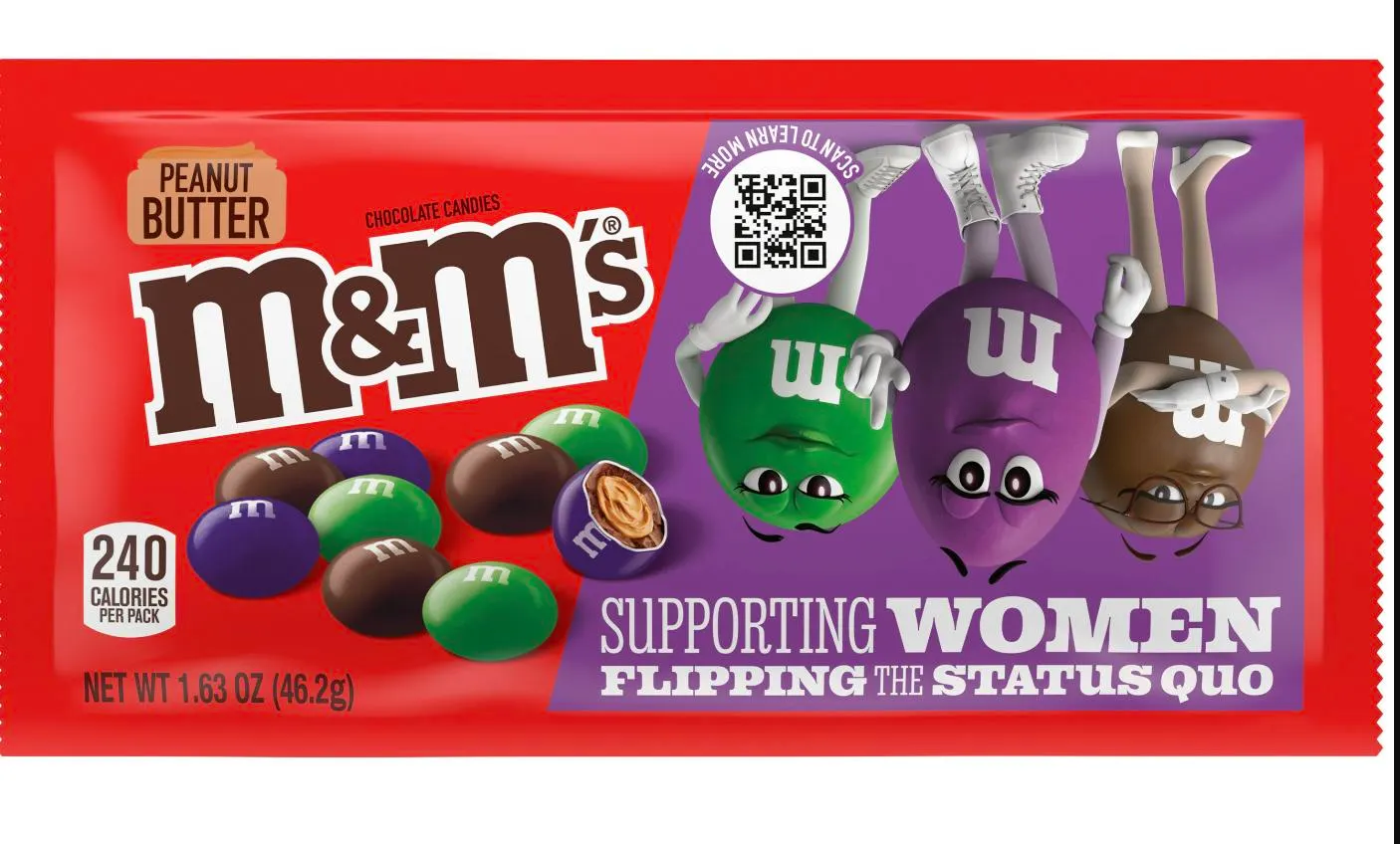
Controversial marketing, when intertwined with religious themes, has the potential to ignite significant backlash and damage a brand's reputation. This article delves into the nuances of this delicate intersection, exploring real-world examples, lessons learned, and the importance of cultural sensitivity.
Engaging in controversial marketing is often synonymous with pushing boundaries to capture attention. However, when religious sentiments take center stage, the risks escalate significantly. In the quest for innovation and edginess, brands may unintentionally encroach upon sacred territories, potentially sparking adverse reactions from religious communities. For a deeper exploration of the intersection between controversial topics and religion, you can delve into the discussions at Fellowship Baptist Church Waco.
Real-world Examples - Unraveling The Impact Of Controversial Marketing
Pepsi's Kendall Jenner Ad - A Secular Misstep
In 2017, Pepsi embarked on a marketing campaign featuring supermodel Kendall Jenner at the forefront of a protest, symbolically bridging divides by handing a can of Pepsi to a police officer. The intent was clear: to promote unity and harmony. However, what ensued was a PR nightmare.
The Controversy Unveiled
While the ad didn't explicitly touch on religious themes, it thrust itself into the realm of societal values. Critics argued that the commercial trivialized serious social and political issues, using activism as a backdrop for selling soda. The attempt to co-opt activism for commercial gain backfired, revealing the pitfalls of insensitivity to the complexities of social movements.
Lessons Learned
Pepsi's misstep serves as a lesson in the importance of understanding the cultural and social nuances of the causes a brand associates with. It underscores the need for authenticity in aligning with social issues and the potential consequences when marketing endeavors are perceived as exploitative rather than supportive.
Adidas' Shackle Sneakers - Unintentional Controversy
In 2012, Adidas faced an unexpected storm of controversy surrounding its "shackle sneakers." The design featured orange plastic shackles, reminiscent of those used in historical contexts related to slavery. While Adidas claimed the design was an artistic expression, the public response was swift and damning.
Unearthing Unintended Symbolism
Though Adidas insisted the design was not explicitly tied to any historical or cultural references, the public drew immediate parallels to the painful history of slavery. Outrage spread rapidly, with critics arguing that the sneakers were a blatant display of insensitivity and a disregard for the historical trauma associated with such symbols.
Rapid Retreat And Damage Control
The public backlash prompted Adidas to swiftly withdraw the product from the market, acknowledging the unintended associations and expressing regret. This incident highlighted the importance of cultural and historical awareness in marketing, emphasizing the need for brands to consider the potential interpretations and implications of their designs.
The Wider Implications
Adidas' unintentional controversy revealed the potential pitfalls of creative expression in marketing. It underscored the responsibility brands bear when introducing products that may unintentionally evoke painful historical narratives. This case serves as a cautionary tale, emphasizing the necessity of cultural competence and sensitivity in all stages of product development and marketing.
ESPN Sportbook
The ESPN Sportsbook serves as a compelling case study in the dynamic landscape of sports betting. Operated by ESPN, a renowned sports media giant, this platform exemplifies the integration of traditional sports coverage with modern wagering opportunities. Offering a user-friendly interface, diverse betting options, and innovative features, the ESPN Sportsbook stands out as a prime example of how established sports entities are adapting to and shaping the evolving world of online sports gambling. This case study provides valuable insights into the convergence of media and sports betting, reflecting the industry's ongoing transformation.
The Pros Of Controversial Marketing Campaigns - Stirring The Pot For Brand Success
Controversial marketing campaigns, despite their polarizing nature, wield a set of advantages that can significantly impact brand visibility and success.
It Gets People Talking
In the age of ubiquitous digital platforms, a controversial campaign ensures that people will be talking about your brand. The provocative nature of such campaigns ignites conversations, whether laudatory or critical. In a world where sharing content, voicing opinions, and engaging in discussions are the norm, a controversial campaign can act as a catalyst, setting off a ripple effect across social mediaand other platforms. If brand awareness is the goal, the shock value of controversial content makes it exceptionally shareable, amplifying its reach.
It Evokes Emotion
Emotional resonance is a hallmark of great advertising. Controversial campaigns take this to an extreme, tapping into deep-seated emotions that linger in the minds of the audience. While not all controversial content aims to evoke warm and fuzzy feelings, the intensity of emotions stirred ensures that the campaign leaves a lasting impact. A memorable campaign, even if provocative, can embed the brand in the audience's consciousness, fostering a connection that lasts beyond the initial shock.
It Can Boost Sales
Remarkably, even campaigns that face vehement criticism have the potential to translate into increased sales. A prime example is Protein World's 'Are You Beach Body Ready?' campaign, which faced accusations of body shaming and sexism. Despite the widespread backlash, the controversy propelled the campaign to generate a reported £1 million profit against a modest £250,000 marketing budget. This phenomenon underscores the age-old adage: "There's no such thing as bad press." The sheer controversy and buzz surrounding a brand can drive consumer curiosity and, ultimately, sales.
The Cons Of Controversial Marketing Campaigns - Navigating The Pitfalls
While controversial marketing campaigns can offer notable benefits, they come with a set of inherent risks that, if not managed meticulously, can have detrimental effects on a brand.
It Has The Tendency To Offend
The very nature of controversial content implies the likelihood of causing offense, challenging societal norms, or pushing boundaries. In an era characterized by heightened sensitivity, where political correctness prevails, brands risk facing the wrath of offended groups. The power of social media magnifies this risk, turning a localized issue into a global controversy. Even unintended offenses, as witnessed in Starbucks' Red Cup Campaign, can lead to misunderstandings and provoke negative reactions from specific communities.
It Can Damage The Brand's Reputation
A carefully crafted brand image can unravel swiftly with a controversial marketing campaign gone awry. The infamous example of Pepsi's Live For Now campaign, featuring Kendall Jenner, serves as a cautionary tale. Accused of trivializing the Black Lives Matter movement, the campaign backfired spectacularly. Pepsi, once a respected brand, became a target of online mockery and ridicule. The rapid damage to brand's reputation necessitated a quick retraction and an official apology. This underscores the potentially far-reaching consequences that a single campaign can have on a brand's overall image.
It Might Take Away The Attention From The Actual Product
The essence of any marketing campaign is to spotlight the product or service it intends to promote. Controversial marketing, if not carefully calibrated, can divert attention away from the core offering. Shock value should not be an end in itself; it must complement a well-thought-out and strategic campaign. Detracting from the product can render the entire endeavor counterproductive, as the controversy becomes the focal point rather than the brand's value proposition.
The Religious Backlash Phenomenon - Navigating The Delicate Terrain
Sensitivities And Deep-rooted Beliefs
Religious beliefs are profound aspects of personal identity, woven into the fabric of individuals and communities. Marketing campaigns that inadvertently disrespect or exploit these beliefs walk on fragile ground. The depth of emotion tied to religious convictions can lead to intense, visceral reactions and widespread condemnation. Brands must recognize the sacred nature of these beliefs and exercise utmost caution to prevent unwittingly crossing boundaries that may trigger backlash.
Cultural Sensitivity As A Cornerstone
Respecting religious sensitivities requires a nuanced understanding of the cultural and spiritual significance attached to certain symbols, practices, or narratives. Brands that underestimate or overlook these nuances risk alienating their audience, as seen in instances where marketing endeavors were perceived as insensitive or offensive to specific religious groups.
Global Perspectives On Religion
In an era of globalization, brands traverse diverse cultural landscapes marked by a multitude of religious affiliations. Understanding the intricacies of each religious community becomes not just a nicety but an imperative for any global brand. Failure to grasp the nuances can result in inadvertent offenses and the potential for a significant religious backlash.
Cultural Competence In A Globalized Market
Brands operating on a global scale must invest in cultural competence, acknowledging the rich tapestry of religious diversity. This entails comprehensive research and engagement with local experts who can provide insights into the unique sensitivities and customs associated with different religious traditions. A one-size-fits-all approach is a perilous path that can lead to unintended religious offense.
Mitigating Backlash Through Informed Communication
Avoiding religious backlash requires more than just cultural awareness; it demands a proactive approach to communication. Brands must transparently communicate their intentions, emphasizing inclusivity and demonstrating an understanding of diverse religious perspectives. This preemptive strategy can help mitigate potential backlash by fostering a sense of respect and understanding between the brand and its audience.
Lessons Learned - Navigating The Crossroads Of Culture And Religion
Research And Cultural Competence
In the realm of marketing with potential religious implications, thorough research into the cultural and religious landscape is not just advisable; it is indispensable. Brands that aspire to connect with diverse audiences must invest in cultural competence, gaining a deep understanding of the values, customs, and sensitivities associated with different religious communities.
The Role Of Cultural Experts And Consultants
Cultural competence goes beyond surface-level knowledge. Brands often find value in consulting with cultural experts or hiring consultants well-versed in the intricacies of diverse religious practices. These experts bring nuanced insights that can guide the development of campaigns, ensuring they resonate positively with the intended audience while avoiding unintended offenses.
Inclusive Marketing Strategies
Inclusive marketing strategies form the bedrock of successful campaigns in a world marked by religious and cultural diversity. Embracing inclusivity means going beyond mere acknowledgment of differences; it involves actively recognizing and respecting diverse religious beliefs. Brands that prioritize inclusivity consciously seek to find common ground, steering clear of divisive themes that could alienate specific communities.
Finding Common Ground
Inclusivity is not about diluting a brand's identity but about finding the common threads that connect people across diverse backgrounds. This approach fosters a sense of belonging among consumers and positions the brand as one that respects and celebrates the rich tapestry of religious diversity.
Swift And Genuine Apology
In the event of backlash, a swift and genuine apology stands as a crucial tool for damage control. Brands that can swiftly acknowledge their missteps, express genuine understanding of the concerns raised and outline concrete steps for improvement demonstrate accountability. Such apologies should not be mere PR exercises; they should reflect a commitment to learning from mistakes and evolving marketing practices to align more closely with cultural and religious sensitivities.
The Power Of Humility And Accountability
A well-crafted apology, backed by meaningful actions, can significantly mitigate the damage caused by controversial marketing. Brands that approach criticism with humility and a genuine desire to improve not only salvage their reputation but also demonstrate a commitment to responsible and culturally sensitive marketing practices.
Navigating The Intersection Responsibly - A Blueprint For Ethical Engagement
In the ever-evolving landscape of marketing, navigating the intersection of culture and religion demands a proactive and ethical approach. By implementing clear guidelines and fostering collaborations, brands can chart a responsible course.
Ethical Guidelines In Marketing
Establishing unequivocal ethical guidelines within marketing teams serves as the cornerstone of responsible campaign development. These guidelines should extend beyond conventional considerations, explicitly addressing potential religious sensitivities. Ethical frameworks act as a compass, guiding the entire process from ideation to execution.
Addressing Religious Sensitivities
Clear communication of ethical expectations surrounding religious content is paramount. Teams should be well-versed in recognizing potential pitfalls, avoiding stereotypes, and steering clear of offensive material. Regular training and awareness programs can ensure that team members remain attuned to the nuances of religious beliefs, fostering a culture of respect and responsibility.
Ensuring Alignment With Cultural Values
Ethical guidelines should not exist in isolation but should seamlessly integrate with a broader understanding of cultural values. Campaigns that align with these values not only avoid potential backlash but also contribute positively to the communities they engage with.
Collaboration With Religious Leaders
In regions where religion holds significant influence, collaborating with respected religious leaders is a strategic move that can provide invaluable insights. Such partnerships go beyond token gestures; they represent a commitment to authenticity and credibility.
Insights And Guidance
Religious leaders bring unique perspectives and a deep understanding of the sensitivities of their communities. Collaborating with them ensures that marketing messages resonate positively and avoid inadvertent offenses. This insight is particularly crucial in regions where religious affiliations are integral to the fabric of daily life.
Enhancing Authenticity And Credibility
Partnerships with religious leaders not only provide guidance but also enhance the authenticity and credibility of a brand. When the community sees that leaders are actively involved in shaping marketing initiatives, it fosters trust and positions the brand as one that respects and understands the values of its audience.
Controversial Marketing - FAQs
What Is A Controversial Marketing?
Controversial marketing refers to the intentional use of provocative and polarizing tactics in advertising and promotional campaigns to generate attention, spark discussions, and ultimately increase visibility for a brand or product. These campaigns often involve pushing societal or cultural boundaries, addressing contentious issues, or utilizing shock value to capture the audience's attention.
What Are The Types Of Controversial Marketing?
Controversial marketing can manifest in various forms, and the types often depend on the nature of the content and the specific strategies employed. Some common types include:
- Shock Advertising:Using provocative or shocking imagery or messages to elicit a strong emotional response.
- Ambush Marketing:Leveraging existing eventsor campaigns to gain attention, often without official sponsorship.
- Provocative Content:Creating content that intentionally challenges societal norms, values, or expectations.
- Cultural and Social Commentary:Addressing sensitive topics such as politics, religion, or social issues to stimulate conversation.
- Sexual or Taboo Marketing:Incorporating explicit or taboo content to attract attention and generate buzz.
What Is Unethical Way Of Marketing?
Unethical marketing involves practices that violate principles of honesty, transparency, and fairness, potentially causing harm to consumers, competitors, or the public. Some examples of unethical marketing include:
- Deceptive Advertising:Providing false or misleading information about a product or service.
- Exploitative Practices:Taking advantage of vulnerable groups or individuals for financial gain.
- Ambush Marketing:Misleadingly associating with an event without official sponsorship.
- False Endorsements:Falsely claiming endorsements or testimonials from individuals or organizations.
- Bait-and-Switch Tactics:Advertising a product at a low price to attract customers but then pushing a more expensive alternative.
Practicing ethical marketing involves transparency, honesty, and a commitment to treating customers, competitors, and stakeholders fairly.
Conclusion
Controversial marketing and religious backlash represent a minefield for brands, demanding meticulous navigation and ethical considerations. The lessons learned from past missteps emphasize the importance of cultural sensitivity, inclusivity, and a commitment to responsible marketing practices. By understanding the profound impact of religious beliefs on consumer perceptions, brands can forge a path that respects diversity and fosters positive connections with their audiences.



